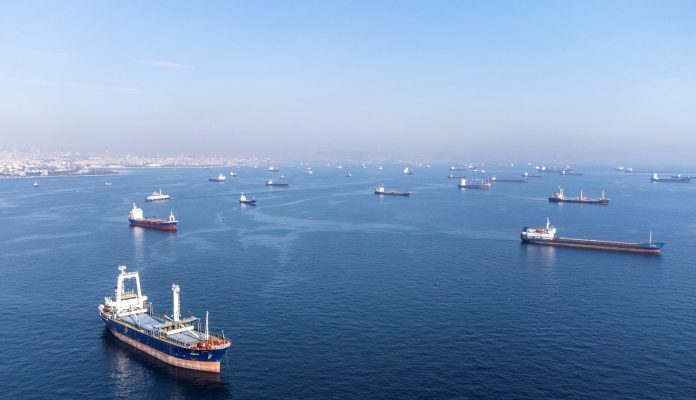MOSCOW: Russia on Wednesday announced it had agreed to return to the Turkish and U.N.-brokered deal that allowed the shipment of vital Ukrainian grain exports through the Black Sea, just four days after suspending its role in the pact in a move that had threatened to exacerbate hunger across the world.
President Recep Tayyip Erdoğan was the first to announce Moscow’s U-turn that followed his phone call with his Russian counterpart Vladimir Putin on Tuesday and after consultations between their defense ministers.
Russia had pulled out of the grain deal over the weekend, citing allegations of a Ukrainian drone attack against its Black Sea fleet.
Erdoğan on Wednesday said that after his call with Putin, Defense Minister Sergei Shoigu informed Turkish Defense Minister Hulusi Akar that the deal for a humanitarian grain corridor would “continue in the same way as before” as of noon Wednesday.
Shortly after Erdoğan’s remarks, the Russian Defense Ministry said Russia agreed to continue carrying out its role in the deal after receiving written guarantees from Kyiv that Ukraine would not use the sea corridor for military actions against Moscow.
The Defense Ministry said thanks to the involvement of the United Nations and Türkiye, Ukraine had formally committed to using the safe shipping corridors through the Black Sea “exclusively in accordance with the stipulations of the Black Sea initiative,” a reference to the separate U.N. and Türkiye-brokered agreements signed by Moscow and Kyiv on July 22.
“The Russian Federation considers that the guarantees received at the moment appear sufficient and resumes the implementation of the agreement,” the statement said. The prices of wheat, soybeans, corn and rapeseed fell sharply on global markets following the announcement, which eased concerns about the growing unaffordability of food. Senior Ukrainian officials expressed gratitude to Türkiye and the U.N. on Wednesday for their roles in Russia’s decision.
A senior official who declined to be identified told media that Moscow’s move was mainly a result of Turkish pressure on Russia.
Infrastructure Minister Oleksandr Kubrakov separately expressed gratitude for the roles played by Erdoğan and U.N. Secretary-General Antonio Guterres. “This is quite an unexpected turnaround,” said Andrey Sizov, head of the Russia-focused Sovecon agriculture consultancy.
“We did not bury this deal, but we did not expect Russia’s return to it so soon either, as it was unclear what kind of guarantees Russia could get and how quickly it would happen. But, well, good job Erdoğan.” “Still, the deal remains shaky, as it is now back in guessing mode as to whether there will be an extension or not. With two weeks to go before the extension, the discussion around this topic will apparently continue,” Sizov added. –Agencies




